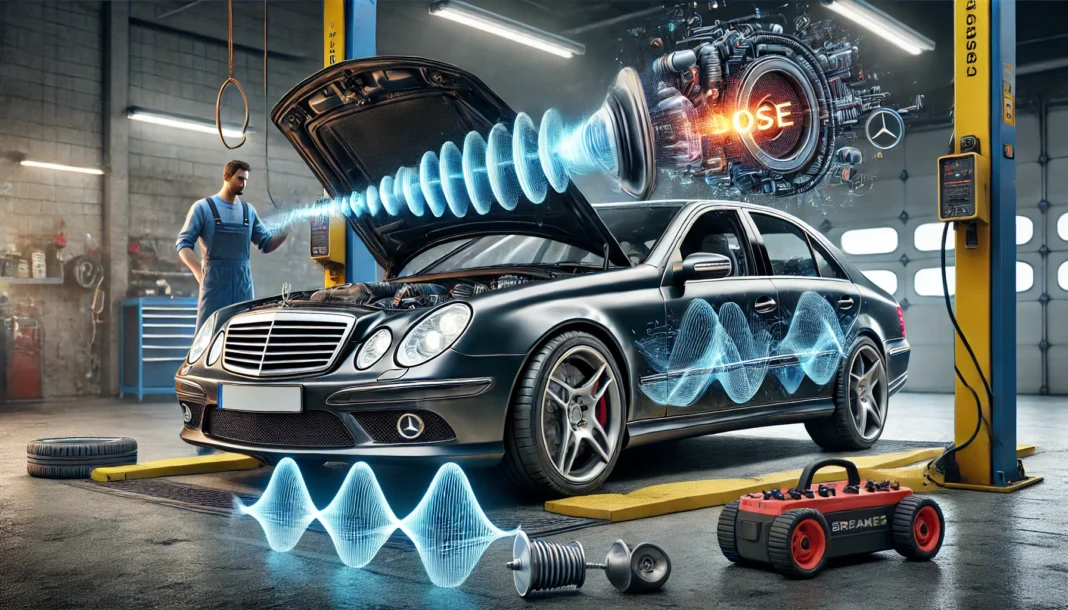The 2003v e500 w211 SRS braking system making loud noise isn’t just annoying—it’s a cry for help from your car.
Ignoring it could lead to costly repairs or even a safety hazard.
So, why is your braking system turning heads (for all the wrong reasons)?
Let’s dive into the top causes, fixes, and how to keep your brakes whisper-quiet.
Why Is Your 2003v E500 W211 SRS Braking System Making Loud Noise?
Imagine this: you’re cruising along the road when suddenly, your brakes screech like nails on a chalkboard.
That sound is your car’s way of saying, “Something’s not right.”
The braking system on the 2003v e500 w211 is complex.
It combines advanced safety features with traditional braking components.
When it starts making noise, the problem could range from worn-out parts to technical malfunctions.
Let’s break down the most common reasons behind the racket.
The Usual Suspects: What Causes the Noise?
1. Worn-Out Brake Pads: The #1 Culprit
Brake pads are designed to wear out over time.
When they get too thin, the metal backing plate rubs against the rotor.
This metal-on-metal contact creates a high-pitched squeal or a deep grinding noise.
Real-life example:
A 2003v E500 driver ignored the squealing brakes for weeks.
By the time they took the car in, the rotors were ruined, turning a $150 job into a $600 repair.
What to look for:
- Persistent squealing or grinding.
- Longer stopping distances.
- Visible wear on the pads.
2. Rusty Rotors: A Hidden Problem
Your rotors don’t just sit there quietly—they take a beating.
Moisture, especially in wet climates, can cause surface rust.
If your car sits unused for a while, this rust builds up and creates a grinding noise when you hit the brakes.
Common symptoms:
- Noise during the first few stops.
- Uneven braking or pulsation.
- Visible rust or grooves on the rotor surface.
3. Sticking Calipers: Silent Damage
Brake calipers apply pressure to the pads, which stop the car.
When they stick, the pads drag against the rotor constantly, causing noise and excessive wear.
A quick story:
A mechanic found that a sticking caliper on a 2003v e500 caused the owner’s pads to overheat and glaze, reducing their effectiveness.
The noise? A constant squeak, even when the brakes weren’t engaged.
Signs of sticking calipers:
- Continuous noise while driving.
- Uneven wear on brake pads.
- A burning smell near the wheels.
4. Contamination on Brake Pads or Rotors
Brake components are sensitive to dirt, oil, and grease.
Contamination can make the pads slip or grip unevenly, leading to noises and reduced braking power.
What happens:
Imagine oil spilled on your kitchen floor.
It’s slippery and messy—now imagine that on your brake rotors.
Key indicators:
- Strange squeals or grinding sounds.
- Shiny or greasy spots on the rotors.
- Inconsistent braking.
5. ABS or SRS Malfunctions
The 2003v e500 w211’s SRS braking system includes ABS (anti-lock braking).
If there’s a problem with the ABS module or sensors, it can cause grinding or pulsation.
This issue is less common but worth investigating if the basics check out.
Signs to watch for:
- Pulsating brakes.
- Grinding during sudden stops.
- Warning lights on the dashboard.
Fixing the Noise: What You Can Do
Now that we know what might be causing the loud noise, let’s tackle how to fix it.
The solution depends on the specific issue.
Replace Worn Brake Pads
This is the most common fix.
New brake pads will eliminate the metal-on-metal grinding and restore smooth braking.
Cost estimate: $150–$300 for parts and labor.
Resurface or Replace Rotors
If your rotors are rusty or warped, they may need resurfacing or replacement.
Resurfacing can smooth out minor imperfections, but severe damage requires new rotors.
Cost estimate: $300–$600, depending on the extent of the damage.
Repair or Replace Sticking Calipers
If the calipers are stuck, they may need cleaning, lubrication, or replacement.
A mechanic can diagnose and fix this issue effectively.
Cost estimate: $200–$500 per caliper.
Clean or Replace Contaminated Components
If oil or grease has seeped onto your brake pads or rotors, cleaning might help.
In severe cases, replacing the affected parts is the safest option.
How to Prevent Noise in the Future
Preventative care can save you from these noisy problems.
Here’s how to keep your 2003v e500 w211 srs braking system in top shape:
- Check brake pads regularly: Replace them before they wear out completely.
- Keep your rotors clean: Avoid leaving your car parked in damp conditions for long periods.
- Schedule regular inspections: A mechanic can catch small issues before they turn into big ones.
- Avoid aggressive braking: Smooth, steady braking reduces wear and tear.
FAQs About the 2003v E500 W211 Braking System
1. Why are my brakes grinding even after replacing the pads?
This could be due to damaged rotors or incorrect pad installation.
It’s best to have a professional inspect your system.
2. Can I drive with noisy brakes?
It’s not advisable.
Noisy brakes usually mean something is wrong, which can impact your safety.
3. How often should I replace brake pads?
Most brake pads last 30,000–70,000 miles.
However, driving habits and conditions can shorten their lifespan.
4. What’s the best way to diagnose brake noise?
Start with a visual inspection.
If you’re unsure, a trusted mechanic can pinpoint the problem.
Final Word on the 2003v e500 w211 SRS Braking System Making Loud Noise
When your 2003v e500 w211 srs braking system making loud noise, it’s a sign that something needs attention.
From worn brake pads to stuck calipers, there are plenty of potential culprits.
Address the problem quickly to avoid bigger (and costlier) issues.
Your brakes are your car’s most important safety system—treat them like it.


